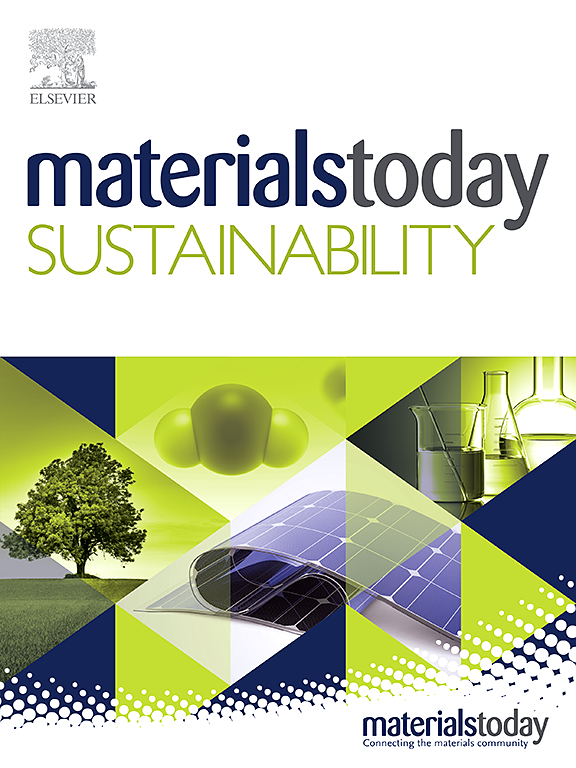Unlocking the potential of lignin-based polyhydroxyurethanes: Insights into kinetics, physical behavior, and recyclability
IF 7.1
3区 材料科学
Q1 GREEN & SUSTAINABLE SCIENCE & TECHNOLOGY
引用次数: 0
Abstract
Safe, sustainable and recyclable lignin-based polyhydroxyurethanes (PHUs) were synthesized through a simple methodology. Aminated lignins (L-NH2) were produced without formaldehyde and used as precursors for the aminolysis of cyclocarbonates (CCs). The impact of lignin up to 50 wt% on reaction kinetics, gelation, material properties and behaviors was evaluated. While lignin had minimal influence on the aminolysis kinetics and CC conversion, it accelerated considerably the gelation (from 11 h to less than 1 min) and enhanced the thermal and mechanical properties of the PHUs. For instance, Young's modulus and tensile strength of the PHUs increased with lignin content from 1.2 to 35 MPa and 0.24–4.3 MPa, respectively. Leveraging on the dynamicity of urethane bonds, PHUs could then be recycled, maintaining material integrity across multiple cycles. However, a gradual decline in mechanical properties was observed, attributable to side reactions such as urethane-to-urea condensation.
This study establishes a proof-of-concept for the production of biobased PHUs with tunable properties from aminated lignins, and also provides a deeper understanding of the influence of lignin on the behavior of these materials. The rapid gelation step induced by lignin opens several opportunities. These findings pave the way for sustainable development of renewable, high-performance polymeric materials, offering a large range of potential applications in e.g., coatings, adhesives, and foams.

解锁木质素基聚羟基聚氨酯的潜力:对动力学,物理行为和可回收性的见解
通过一种简单的方法合成了安全、可持续和可回收的木质素基聚羟基聚氨酯(PHUs)。在不使用甲醛的情况下生产出了胺化木质素(L-NH2),并将其用作环碳酸盐(CC)氨解的前体。评估了高达 50 wt% 的木质素对反应动力学、凝胶化、材料特性和行为的影响。虽然木质素对氨溶动力学和 CC 转化的影响很小,但它大大加快了凝胶化(从 11 小时缩短到不到 1 分钟),并提高了 PHU 的热性能和机械性能。例如,随着木质素含量的增加,PHU 的杨氏模量和拉伸强度分别从 1.2 兆帕增加到 35 兆帕和从 0.24 兆帕增加到 4.3 兆帕。利用聚氨酯键的动态性,PHU 可以循环使用,在多次循环中保持材料的完整性。这项研究为利用胺化木质素生产具有可调特性的生物基 PHU 提供了概念验证,同时也加深了人们对木质素对这些材料行为的影响的理解。木质素诱导的快速凝胶化步骤带来了许多机遇。这些发现为可再生高性能聚合材料的可持续发展铺平了道路,为涂料、粘合剂和泡沫等领域提供了大量潜在应用。
本文章由计算机程序翻译,如有差异,请以英文原文为准。
求助全文
约1分钟内获得全文
求助全文
来源期刊

Materials Today Sustainability
Multiple-
CiteScore
5.80
自引率
6.40%
发文量
174
审稿时长
32 days
期刊介绍:
Materials Today Sustainability is a multi-disciplinary journal covering all aspects of sustainability through materials science.
With a rapidly increasing population with growing demands, materials science has emerged as a critical discipline toward protecting of the environment and ensuring the long term survival of future generations.
 求助内容:
求助内容: 应助结果提醒方式:
应助结果提醒方式:


